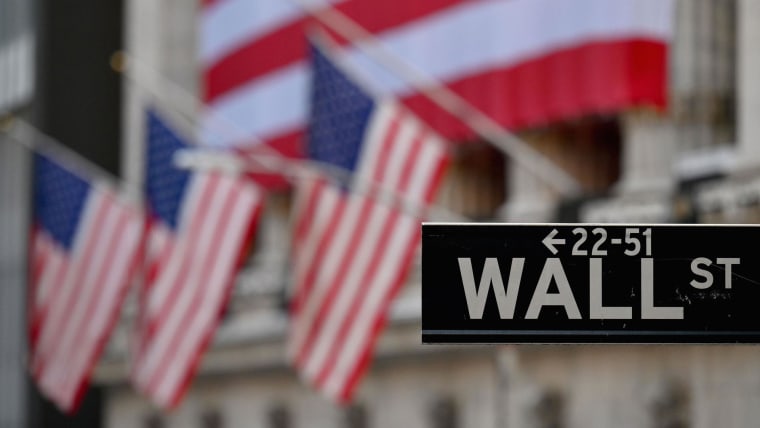Americans might be gearing up for the holidays, but economists are looking ahead to January, trying to parse a bevy of new data points for clarity about what lies beyond 2020. The picture is, at best, murky — and there is growing trepidation that an uncontrolled Covid-19 surge triggered by the Thanksgiving weekend could further weaken a slowing recovery.
"What we're looking for at the moment is signs of cracks in what has been reasonably good economic growth," said Gary Schlossberg, global strategist at the Wells Fargo Investment Institute.
The economic data is vexing even the experts: Some figures indicate continued, albeit more modest, recovery, but others are flashing red. One of the warning signs is weekly jobless claims, which jumped to a higher-than-expected 778,000 last week — the second weekly increase in a row.
Economists said the rotation of workers who have used up their state unemployment benefits — cycling out of the programs and into emergency pandemic programs — indicates that more of the spring and summer job losses are becoming permanent, as rising virus case numbers nationwide prompt business and school closings in more places.
Renewed lockdowns could be devastating for workers, whose pandemic safety net will vanish in mere weeks. The Pandemic Emergency Unemployment Compensation program ends the day after Christmas, and the Pandemic Unemployment Assistance program, which provided unemployment benefits to gig workers and others not typically covered by state programs, expires Dec. 31.
"A lot of this data is really starting to slow down and become worrisome," said David Wagner, portfolio manager at Aptus Capital Advisors. "There's a lot of data that just came out today and yesterday that's maybe showing more signs of slowing growth going into Q4, and maybe even Q1 right now."
Third-quarter gross domestic product grew by 33.1 percent, matching the estimate released last month. The Commerce Department said that there were some upward revisions to investments and exports but that the gains were offset by downward revisions to state and local government spending, private inventory investment and personal consumption. Economic output in the third quarter benefited from a bump in durable goods, and manufacturing showed gains. The enormous jump in third-quarter GDP came after a quarter in which economic activity plunged by 31.4 percent.
Income and spending moving in opposite directions indicates that Americans are drawing down on the money many of them socked away early in the pandemic.
Household spending is holding up for now, growing by 0.5 percent in October, but the Commerce Department said personal income, disposable income and savings dropped.
Income and spending moving in opposite directions indicates that Americans are drawing down on the money many socked away early in the pandemic. It also shows the extent to which the recovery has been supported by the government, because much of the reduction in income was associated with a drop in pandemic assistance.
"CARES Act payments provide a substantial boost in the second quarter, and they're unwinding. The risk is we're going to see a further unwinding going forward," said Mike Englund, chief economist at Action Economics. The drop in income could be an early indication. "It may suggest a bigger slowing going forward," he said. "The question now is the first quarter."
Mayfield said a potential silver lining is that worsening economic conditions could motivate Congress to move more quickly on a stimulus package. "Week to week, it can be a little noisy, but if we start to see a trend as the pandemic is rearing its head again, if the jobless claims start to pick up ... it could bring some of the more skeptical members of Congress around," he said.
In addition, consumer sentiment has taken a turn for the worse. The Conference Board said Tuesday that consumer confidence fell in November, driven primarily by growing negativity in future expectations. Ian Shepherdson, chief economist at Pantheon Macroeconomics, even said in a research note that November spending could contract outright for the first time since April.
"We're hoping that increasing spending on goods will be enough to offset the weakening in discretionary services, notably leisure and hospitality," he said. "Consumers' spending is losing momentum in the face of the Covid third wave."
"about" - Google News
November 26, 2020 at 04:03AM
https://ift.tt/2KHK5rd
Why economists are getting worried about 2021 - NBC News
"about" - Google News
https://ift.tt/2MjBJUT
Bagikan Berita Ini















0 Response to "Why economists are getting worried about 2021 - NBC News"
Post a Comment